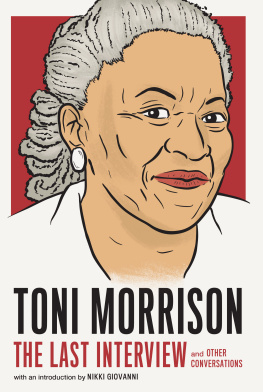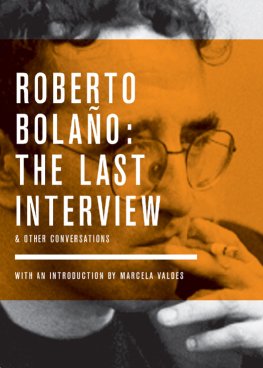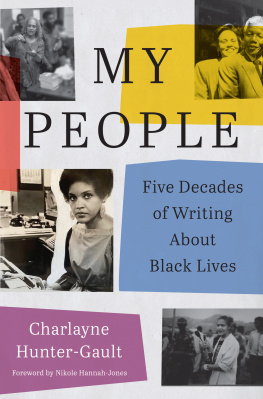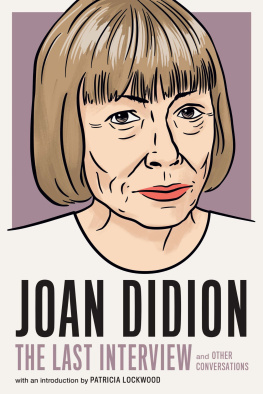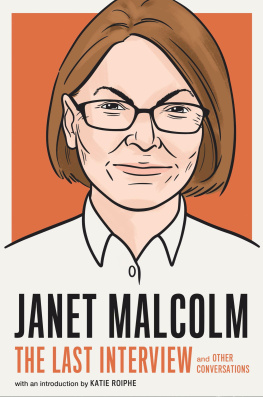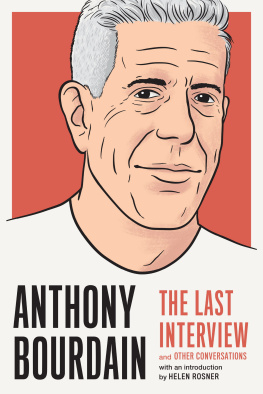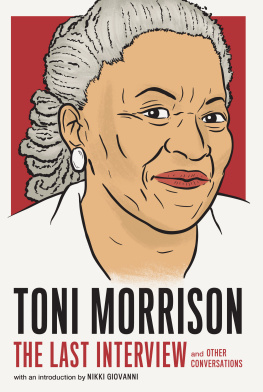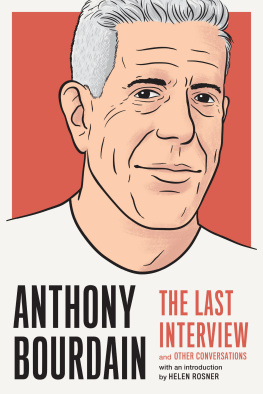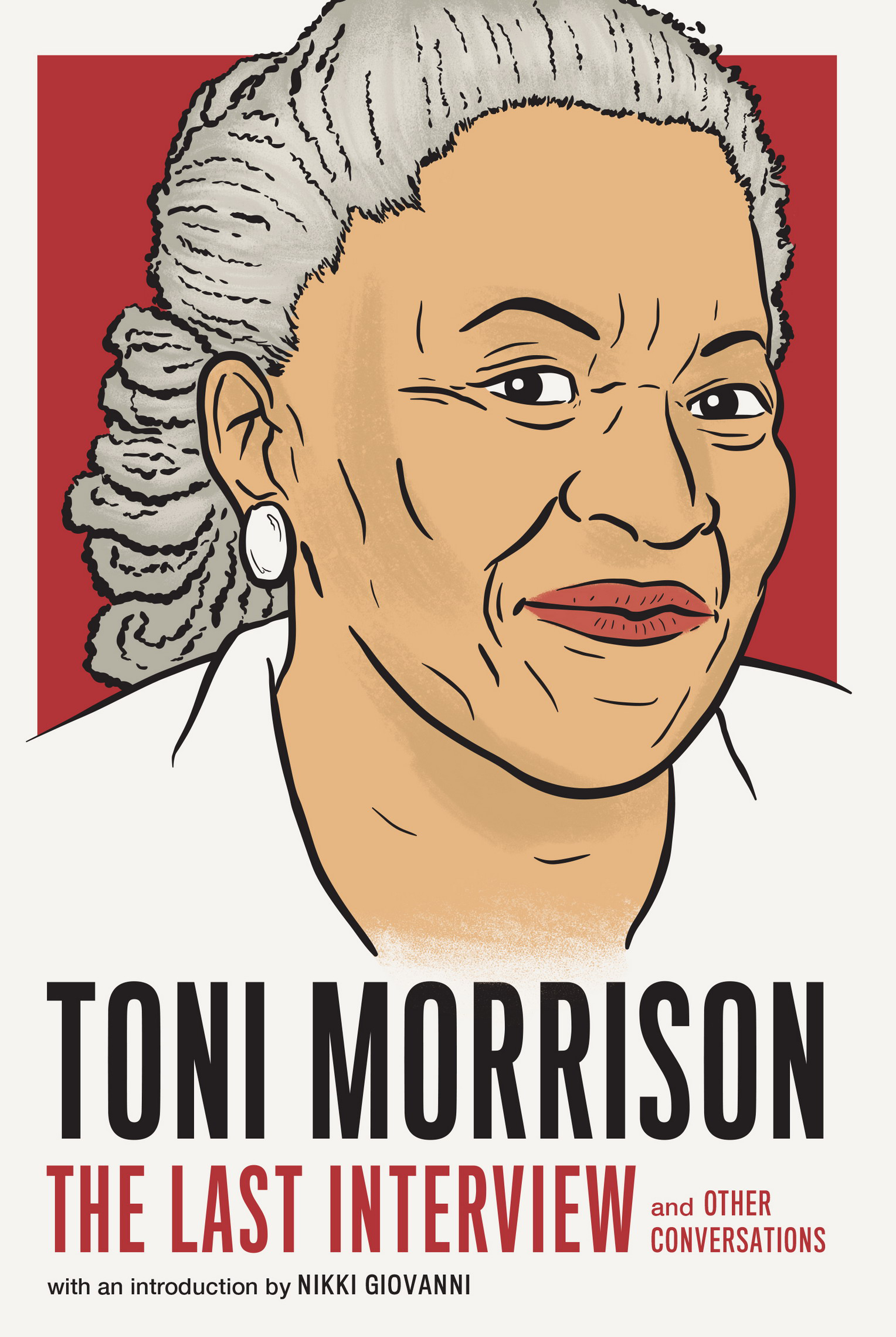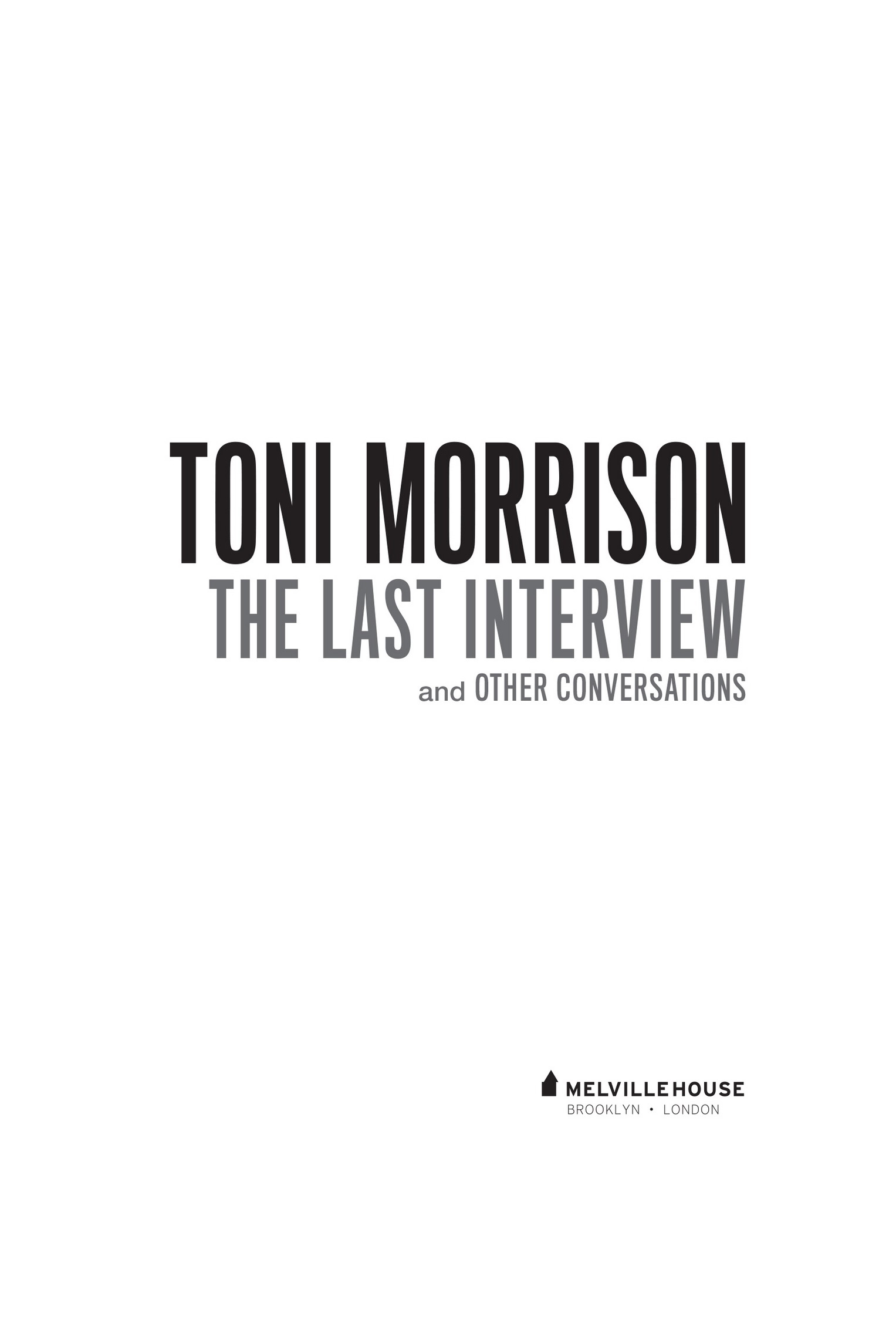Contents
Landmarks
Print Page List
TONI MORRISON: THE LAST INTERVIEW AND OTHER CONVERSATIONS
Copyright 2020 by Melville House Publishing
Editors Personal Commitment Shapes a Scrapbook of Black History republished with permission of Publishers Weekly / PWxyz, LLC.
From Editors Personal Commitment Shapes a Scrapbook of Black History, Lila Freilicher, Publishers Weekly, volume 204, 10 Dec 1973.
Permission conveyed through Copyright Clearance Center Inc.
Interview with Toni Morrison copyright 1986 by Donald M. Suggs Jr. First published in River Styx.
Toni Morrison on Capturing a Mothers Compulsion to Nurture in Beloved. Interview with Charlayne Hunter-Gault from PBS NewsHour. Copyright 1987 NewsHour Productions, LLC. Used by permission.
Toni Morrison on Love and Writing, and Dealing with Race in Literature. From World of Ideas with Bill Moyers, courtesy Doctoroff Media Group. Copyright 1990.
The Salon Interview copyright 1998 by Zia Jaffrey. First appeared in Salon Magazine, February 3, 1998.
National Visionary Leadership Project interview conducted with Camille O. Cosby copyright 2004 National Visionary Leadership Project. Used by permission.
Toni Morrisons Haunting Resonance, first published in Interview magazine, copyright 2012 by Christopher Bollen. Used by permission.
The Last Interview copyright 2012 Alain Elkann. First published on Alain Elkann Interviews. Used by permission.
Reproduction in any manner in any language in whole or in part without written permission is prohibited.
First Melville House printing: May 2020
Melville House Publishing
46 John Street
Brooklyn, NY 11201
and
8 Blackstock Mews
Islington
London N4 2BT
mhpbooks.comfacebook.com/mhpbooks@melvillehouse
ISBN9781612198736
Ebook ISBN9781612198743
A catalog record for this book is available from the Library of Congress.
a_prh_5.5.0_c0_r0
CONTENTS
By Lila Freilicher
Publishers Weekly
December, 1973
Interview with Donald M. Suggs, Jr.
River Styx
1986
Interview with Charlayne Hunter-Gault
PBS NewsHour
1987
Interview with Bill Moyers
PBS TV
March 11, 1990
Interview with Zia Jaffrey
Salon
February 3, 1998
Video interview with Camille O. Cosby
November 5, 2004
Interview with Christopher Bollen
Interview Magazine
March, 2012
Interview with Alain Elkann
AlainElkannInterviews.com
October 14, 2018
INTRODUCTION
NIKKI GIOVANNI
I wish I owned a restaurant then I could run Specials: Today Toni Morrison Stew. An exotic mix of tears and sympathy. Nothing grows except The Bluest Eye and a special shot of Pecola which flies over very quickly because no one can really embrace the fear and hatred. The best thing about The Bluest Eye special is the Marigolds. They didnt flower but the seeds are there. Drop a few in the bowl and see what grows. Or doesnt.
I also really recommend the Sula. The mixture of two girl friends who lose each other. It does not come with dessert but it can have hot bread. When the Nel is ready to be taken out of the oven thats the best time to put the Sula in the refrigerator. Timing is everything with this dish. It has to balance the desire with the impossible. Sometimes the chef will put a bit of college in to mix with that wonderful hat. The hat is a lot of fun because whoever catches it gets a free Song of Solomon and a fresh glass of milk.
Of course wed mix Jazz Belovedly with a movie and a talk or two. Lets call it The Morrison Caf. Vodka, though my preference is cheap champagne. And only bottled water.
If Tonis home had been open to gourmets there would always be porgies frying. Yeah sure everyone thinks fried food is bad for your heart or something but how did the Black Americans get through slavery and segregation without catfish and chitlins? Porgies were a treat. There was a restaurant in the Village that sometimes had porgies and knowing Toni loved them I would go to New York and pick her up. It was more than a poet could actually afford but she was, after all, Toni Morrison. I had my town car take me up to her home and take us to the caf. I still dont know what we talked about but when dinner was over I would ride back to her house. She always said she could call her own town car but I knew my Grandmother would have a heavenly fit if I let Toni go home alone. So I rode up said Good Night and came back to Manhattan. She must have known poets are poorer than novelists but she also knew we both were southerners and there were rules.
I didnt ever know the home that burned down but what I loved about the home on the Hudson was the Nobel Prize citation in the downstairs bathroom. I am fortunate to call Toni Morrison friend. Mostly neither of us had much to say. There was always a comfortable silence when I visited her. My mother transitioned 24th June then my sister just after that on 5 August. I tried to do what any good daughter and sister would do and I think I got it done. But it was sad. One afternoon I was sitting at my desk just sort of being dismayed when I decided to call Toni. I probably talked more than ever and she was kind enough to listen. She finally said Nikki, Write. Thats all you can do. Write.
I wish I had a restaurant then I could also cook up a special Morrison Stew to help us all go through this. The title of this book is The Last Interview but there will never be a last interview with Toni. Her books live and talk to us. She could have said Read. But she said Write. And she is Right.
THE FIRST INTERVIEW: EDITORS PERSONAL COMMITMENT SHAPES A SCRAPBOOK OF BLACK HISTORY
BY LILA FREILICHER
PUBLISHERS WEEKLY
DECEMBER 1973
The idea of publishing a nostalgic scrapbook of black history is such a natural that it seems a wonder it wasnt done years ago. Nevertheless it took Random Houses vivacious black editor, Toni Morrison, to think of it: The Black Book (February 26, $15; paper $5.95), and it took Bill Cosby to describe it: Suppose a 300-year-old black man had decided, oh, say when he was about 10, to keep a scrapbooka record of what it was like for himself and his people in these United States. He would keep newspaper articles that interested him, old family photos, trading cards, advertisements, letters, handbills, dreambooks and postersstories, rumors, dates. And he would end up with a journey of Black America: a book just like this one
No such 300-year-old gentleman was available to Toni Morrison, but she had something almost as good at her disposalthe black memorabilia collections of four men: Middleton (Spike) A. Harris, Morris Levitt, Roger Furman and Ernest Smith, all credited as authors of The Black Book. Toni supplemented this material with recipes, quotes, stories and other contributions from her friends and relativesjust plain folksbecause her idea was to put together a book that the average black person could relate on a personal level. Toni calls this real black publishing, as opposed to black publishing programs that produce scholarly black histories for a select audience.
Illustrated on every page, The Black Book traces the history and culture of black people from their origins in Africa through slavery and freedom, giving examples of black contributions to music, American history, the arts, and sports, and including chapters on folklore and voodoo. Theres the New York Caucasian newspaper; a poster proclaiming the Public Sale of Negroes; slave owners records and photos of beatings and lynchings.

